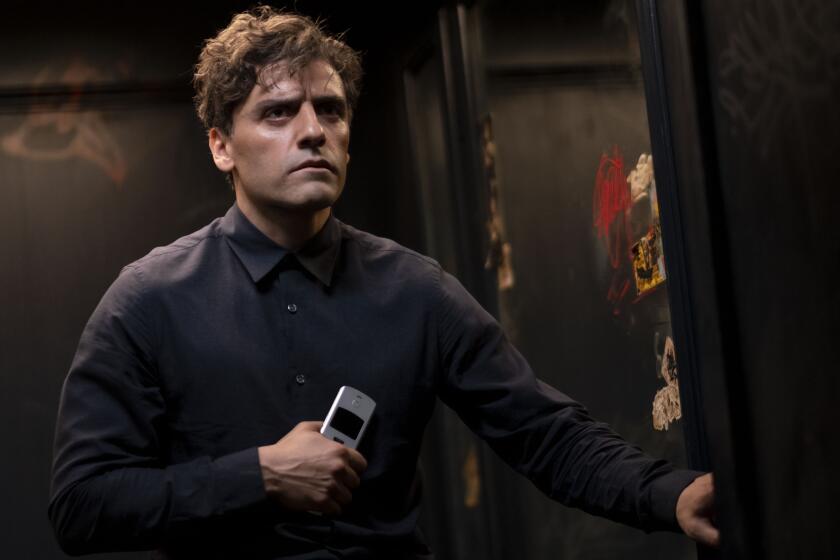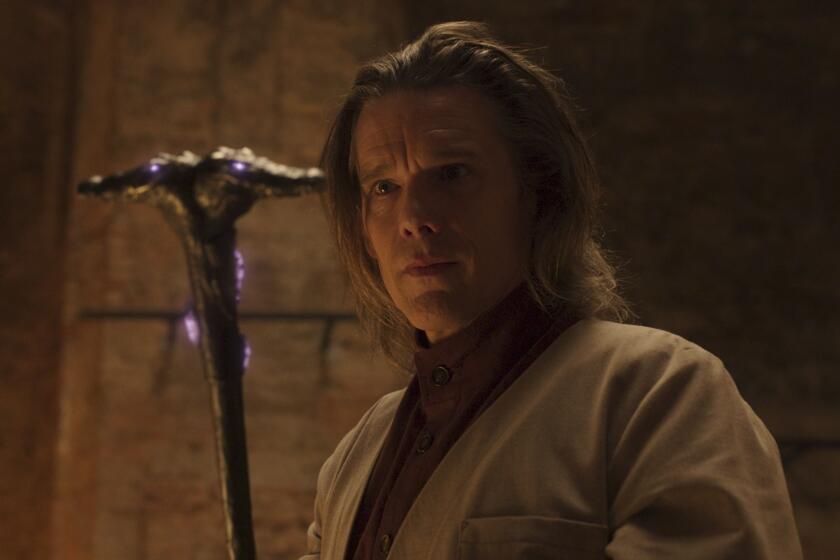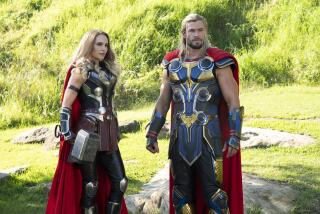A guide to ‘Moon Knight’s’ council of Egyptian gods — and their Marvel backstories
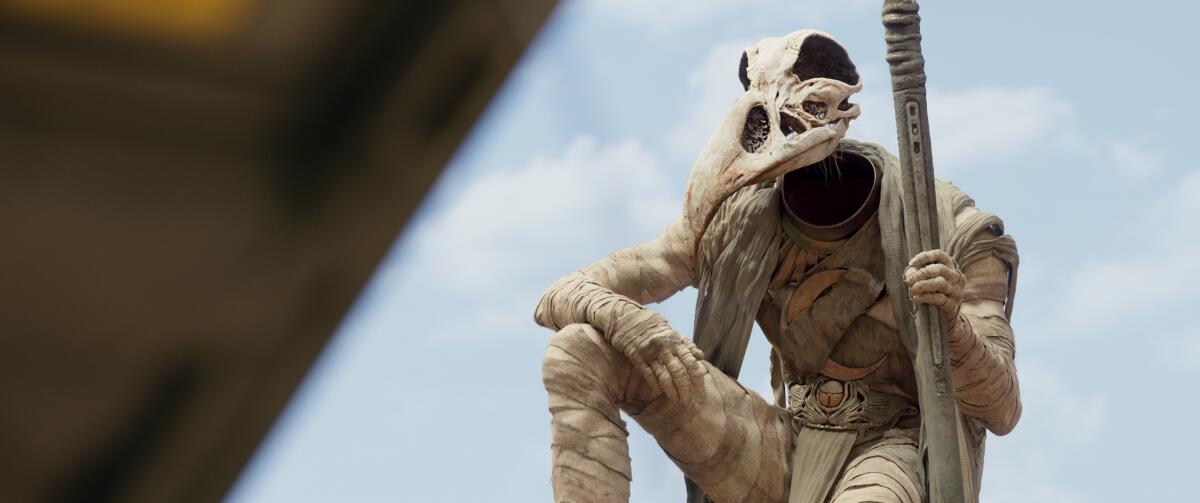
- Share via
This story contains spoilers for the third episode of “Moon Knight” on Disney+.
Khonshu suffers the consequences of flexing his powers in the third episode of “Moon Knight,” which also introduces a number of Egyptian gods into the Marvel Cinematic Universe.
Picking up after the events of Episode 2, the latest installment — titled “The Friendly Type” — sees Marc Spector (Oscar Isaac) at the forefront of the adventure as he tries to track down Arthur Harrow (Ethan Hawke) with the help of Layla El-Faouly (May Calamawy) and Steven Grant (also Isaac).
In an attempt to prevent Harrow from discovering Ammit’s tomb and releasing her into the world, Khonshu (voiced by F. Murray Abraham) seeks intervention from the Ennead — a council of Egyptian gods. But it’s clear that these gods don’t approve of Khonshu’s methods, as he’s already been banished for previous actions.
Here’s everything you need to know about Steven Grant, Marc Spector and more in the latest Marvel Studios series, premiering Wednesday on Disney+.
It’s soon revealed that these other gods — including Horus, Isis, Tefnut, Osiris and Hathor — decided long ago not to “meddle in the affairs of man” and instead leave their Avatars to observe humanity while they remain in the Overvoid.
As his dynamic with Marc shows, Khonshu prefers a more hands-on approach.
What is the Ennead?
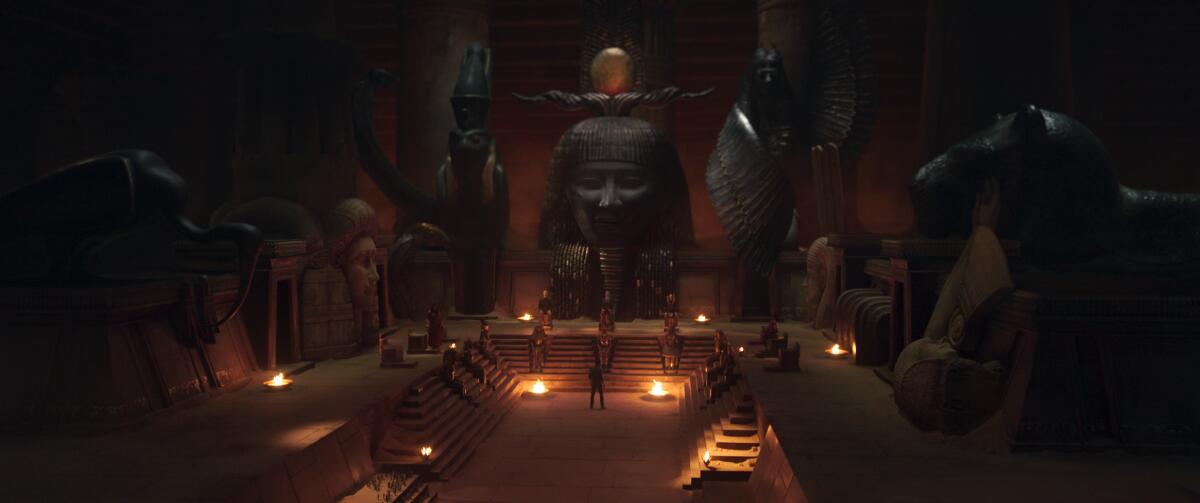
As Steven mentioned in the first episode of the series, the Ennead is “the supergroup of Egyptian gods.” An ennead could mean any group of nine deities that operate together, but the most well known is the Great Ennead of Heliopolis. As Steven tried to explain to his museum boss, the Great Ennead usually includes Atum and eight of his descendants: his children, Shu and Tefnut; their children, Geb and Nut; and the fourth generation Osiris, Isis, Seth and Nepthys. There is also a version of this group that includes Horus.
Egyptian mythology was not fixed, so its deities have regional and generational variations. Atum is the sun god and the center of Heliopolitan theology and its creation myths. Shu is often described as the god of air and sunlight, while Tefnut is usually considered the goddess of moisture. Geb and Nut are the Earth god and sky goddess, respectively. Osiris — a god associated with death, rebirth and fertility — has been described as the ruler of the underworld. Sometimes described as the throne goddess, Isis has been associated with magic, healing, mourning and more. Seth has been described as a tumultuous desert god and depicted as a foe of Osiris and Horus. Nepthys is a goddess associated with funerary arts. There are a number of versions of Horus, but he is generally associated with Egyptian kings.
The members of the Ennead in “Moon Knight” appear to be different, as it includes Hathor — the goddess of music and love — and presumably, at some point, Khonshu.
Viewers, including ‘Shang-Chi’ star Simu Liu, are criticizing the Mandarin in the Disney+ series ‘Moon Knight.’ Here’s what you need to know.
Have these gods appeared in Marvel comics?
Yes. Much like how Norse mythology was mined for the Thor and the Asgardians, Marvel comics have included stories and characters based in Egyptian mythology, as well as other pantheons of gods. In the comics, the Egyptian gods were from a fictional celestial realm called Heliopolis.
Among Horus, Isis and Osiris’ earliest appearance is “Thor” No. 239 (1975), involving a storyline that initially pitted them against the titular hero because they needed his father — Odin — to help them defeat Seth. Hathor, and her counterpart Sekhmet, appeared in a 2010 issue of “Heroic Age: Prince of Power,” a miniseries that involved the son of Loki plotting to become a god by stealing sacred items from various groups of deities.
What about Ammit?
In Egyptian mythology, Ammit, or Ammut, is described as a monstrous deity and the devourer of hearts and the dead. Much like Harrow has described in the show, she is associated with destroying those who led evil lives and keeping them from the afterlife.
In the comics, Ammut plays a role in a 2016 run of “Moon Knight” that sees Marc Spector try to navigate what is real in a world that might be in the process of being taken over by Egyptian gods.
More to Read
The complete guide to home viewing
Get Screen Gab for everything about the TV shows and streaming movies everyone’s talking about.
You may occasionally receive promotional content from the Los Angeles Times.
